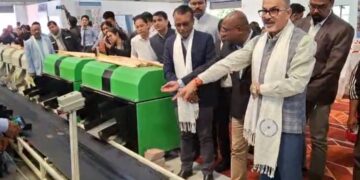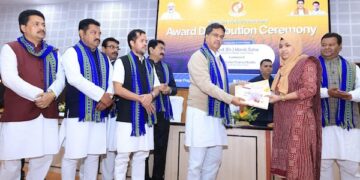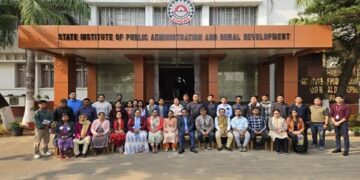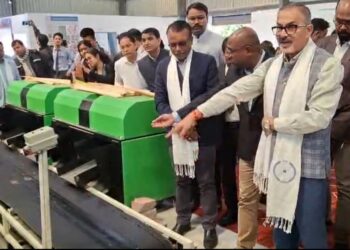July 31:In a remarkable collaborative effort, two faculties from ICFAI University, Tripura, Dr. Shantanu Acharya and Dr. Payel Deb, have successfully created a prototype of a hybrid low-cost solar-powered wheelchair. The initiative received financial support from the International Solar Innovation Council (INSIC) in Finland, aiming to offer enhanced mobility and independence to individuals with physical challenges and the elderly.
Dr. Acharya, an Assistant Professor in the Electrical Engineering department and a Ph.D. holder in renewable energy from NIT, Agartala, was inspired to design this innovative wheelchair due to personal experiences with his father, who is a slipped disc patient, and his niece, who suffers from cerebral palsy. Both faced difficulties in maintaining balance and posture, motivating Dr. Acharya to create an affordable and lightweight powered wheelchair, unlike the expensive and cumbersome options available in the market.
The project involved collaboration with Dr. Payel Deb from the mechanical department, along with two others, Suman Das and Prashanth Debnath, who contributed their expertise as a lab technician and workshop supervisor, respectively.
With funding of Rs. 3.28 lakh from INSIC, the team worked diligently for a year to develop the present prototype, incorporating feedback from physically challenged individuals who tested an earlier version of the wheelchair.
The team made ingenious design choices, using lightweight stainless steel square bars and flexible solar panels, to reduce the weight significantly. The wheelchair also features an integrated automated speedometer, luminary, horn, LED lights, and indicators for enhanced functionality.
Special cushions in the seat ensure user comfort, with the added convenience of easily converting it into a commode if needed.
To promote energy efficiency, the wheelchair was designed as a hybrid model, capable of being charged both by solar energy and electricity.
While some parts and electronic components had to be sourced from outside the state, the overall development cost amounted to approximately Rs. 85,000. The team believes that if produced on a larger scale for commercial purposes, the cost could be reduced by half.
Dr. Payel Deb, has been involved in the wheelchair’s design and focus on simplicity to facilitate easy repairs, even in remote areas – a common complaint against existing motorized wheelchairs available in the market.
The successful testing of the solar-powered wheelchair was witnessed by officials from the Tripura Renewal Energy Development Agency (TREDA) and the Science and Technology Department of the state during an exhibition. The wheelchair received high praise for its efficiency.
Prof. Dr. Biplab Halder, Vice Chancellor of ICFAI University, Tripura, lauded the faculties’ innovative efforts, stressing the positive impact on students and their motivation towards further innovation—an essential aspect of any nation’s development.
Looking ahead, ICFAI University plans to make the wheelchair commercially available, leading to entrepreneurship opportunities in Tripura, generating employment, and offering sustainable solutions to the challenges faced by physically disabled individuals through green energy utilization.







































